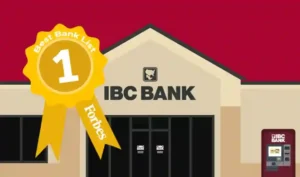Entrepreneurial Tips & Success Strategies for Future Leaders

Alright, here’s the deal. If you’re reading this, chances are you’re looking for some solid entrepreneurial tips to kick-start your future leadership journey. We all want to be the next big thing, right? The next Mark Zuckerberg, Oprah, or, hell, even the next guy who sold artisanal wooden spoons at the farmer’s market and is now a millionaire (don’t laugh—these people exist). But success isn’t a straight shot. So, buckle up—let’s talk about how you can actually make it.
1. Find Your Vision—or Your Vision Will Find You
So here’s my first piece of advice: Don’t wander around aimlessly. I’ve seen it (and done it) too many times—half-baked ideas and zero direction. Entrepreneurs who succeed have one thing in common: they have a clear vision. Period.
When I first started, I was all over the place. One minute, I was planning a mobile app that connected people with local cat-sitters (I thought I was onto something). The next minute, I wanted to sell eco-friendly spoons. Spoiler alert: None of it worked.
What did work was getting laser-focused on a problem I wanted to solve, then coming up with a product that could make a real impact. You can’t afford to be wishy-washy. Ask yourself: What’s my big idea? What’s my “why”? When I locked into my mission, everything fell into place. Get clear. Or get lost.
2. Failure? Embrace It. Seriously.
Fast forward past three failed attempts and countless sleepless nights. I’m telling you: failure is part of the game. I mean, if you’re not failing, are you even trying?
Take my first failed business venture: a homemade jam business. Did I know the first thing about canning? Nah. Did I give it a shot? You bet. My jars of strawberry rhubarb had the texture of concrete. But guess what? I learned more in that first month than in my entire year in business school (and that’s saying a lot).
The key to failing forward is to not take yourself too seriously. My jam business crumbled, but that setback opened the door to a much better idea. You need to be willing to screw things up, fix ‘em, then try again. Think of it like trying to make sourdough during quarantine—one moment you’re baking bread, and the next moment you’re in a flour-covered rage because you haven’t got a clue. We’ve all been there.
3. Your Network is Your Net Worth
Let me break it down for you: It’s not just about what you know, but who you know. That’s not some old adage that’s been passed down for centuries for no reason. Trust me, building your network will set you up for success in ways you can’t even imagine. It’s not just about collecting business cards; it’s about finding people who’ve been there, done that, and survived to tell the tale.
When I first launched my company, I reached out to literally anyone who could offer advice. Local entrepreneurs, old college buddies, that one cousin who always seems to know someone. At one point, I was texting a guy I met at a coffee shop, asking him if he had any leads for web designers. Was I embarrassed? A little. But here’s the kicker: One of those random connections turned into a business partnership. You never know who’s going to have your back.
Building a network doesn’t happen overnight, though. Be intentional about who you surround yourself with. People who inspire you, challenge you, and make you better. These are the folks who will help you stay in the game, whether it’s during your darkest days or when you’re on top of the world.
4. Innovate. Constantly.
It’s easy to get comfortable, but comfort zones are where good ideas go to die. If you’re not innovating, you’re stagnating. I mean, think about it: no one remembers the guy who made a mediocre sandwich. It’s the guy who made a sandwich with, like, spicy aioli and quinoa that people talk about. (Not that I’m suggesting you need quinoa in everything, but you get the idea.)
Take a page from the Steve Jobs playbook: Always be thinking about how to do things better. How can you make your product or service more valuable? How can you make your customers’ lives easier? Start obsessing over the little details—how things can improve, how you can innovate. It’s not about reinventing the wheel every time—it’s about tweaking things just enough to stand out.
Fun fact: The first iPhone wasn’t even Apple’s original idea—it was a reimagining of existing tech that was done so well it changed the game. No one remembers who came up with the original designs; they only remember Jobs’ final vision. That’s the power of innovation.
5. Know Your Numbers (or Get Someone Who Does)
Now, this one’s a biggie. And it’s a hard truth I had to learn the hard way. Don’t be like me—don’t wing it when it comes to the financial side of things. For a long time, I thought my creativity and passion would cover up my complete lack of understanding of cash flow. Spoiler: It didn’t.
You need to know the basics: your costs, your profit margins, your expenses. If numbers aren’t your thing (and let’s be real, they weren’t mine), hire someone who gets it. But don’t make the mistake of ignoring this part of your business. Your numbers are the lifeblood of your company. Know them. Or be prepared for some tough lessons.
6. Build a Team (You Can’t Do It Alone)
I don’t care how much of a “lone wolf” you think you are—at some point, you need a team. I learned this the hard way too. After one too many all-nighters, I realized I couldn’t scale my business on my own. I wasn’t good at everything, and frankly, some things were better left to experts.
And I don’t mean just any team. I mean the right team. People who complement your strengths and help shore up your weaknesses. You’ll need people who are reliable, driven, and who believe in your mission. Hire slowly, fire quickly. You can’t afford to waste time on people who aren’t up to the task.
My first hire was a mess—his email responses were longer than the business plans I’d spent days drafting. But you know what? After a few tough lessons, I figured out how to spot the right people. Trust me, your team will either make or break your business. Choose wisely.
7. Adapt or Be Left Behind
Look, if you’re not changing with the times, you’re toast. Tech moves fast, markets shift, and customer preferences change on a dime. If you can’t pivot when necessary, you’re going to find yourself in serious trouble. I remember when my first website had a vintage look—like, an actual Geocities homepage with flashing text and everything. My customers loved it… for about two weeks. Then they left. Fast.
So, learn how to be nimble. Whether it’s trying new marketing strategies, jumping into new platforms, or updating your product line, always stay flexible. My company would’ve drowned without my ability to adapt. And while I wish I could say I had a crystal ball, most of the time, I just followed my gut and adjusted when things weren’t working. If something isn’t clicking, change course. It’s that simple.
Conclusion: Take These Entrepreneurial Tips and Own Your Future
There’s no secret sauce to entrepreneurship. Sorry to disappoint you. But if you stick to these tips—develop a vision, embrace failure, innovate, build the right team, and keep your numbers in check—you’ll be miles ahead of the competition. Remember, every successful entrepreneur has had to start somewhere. And most of us weren’t born with a perfect plan.
I don’t know what the future holds for you, but I do know this: If you stay true to your vision, work your butt off, and keep learning from your mistakes, you’re bound to go places. Just remember, it’s not about having the perfect plan. It’s about sticking with it, come hell or high water.







